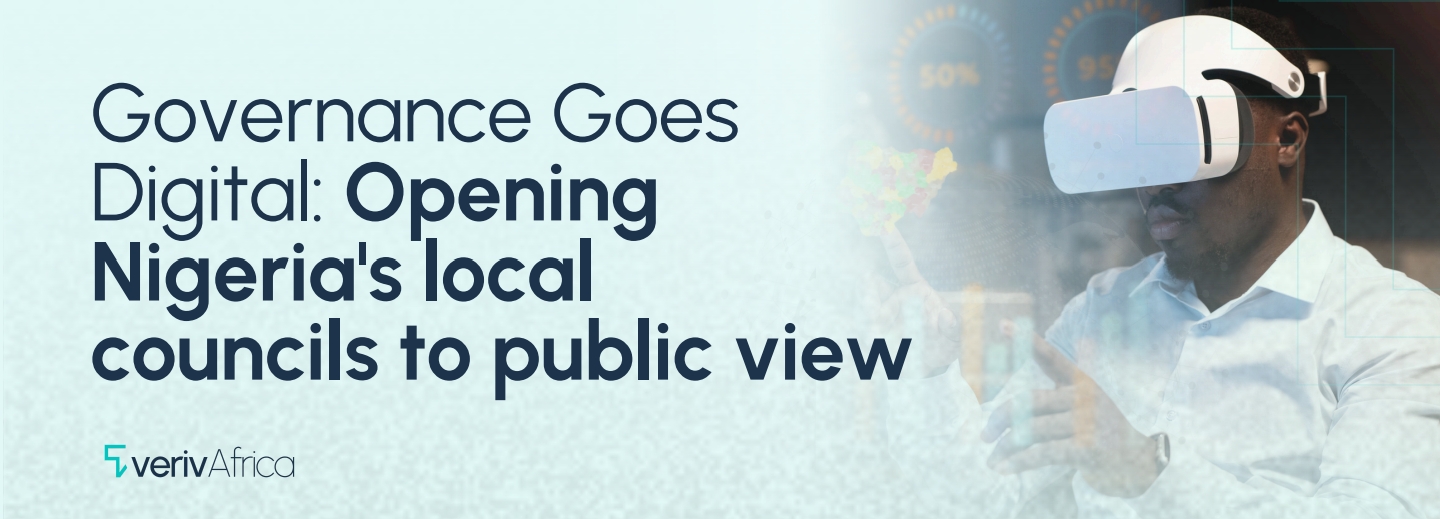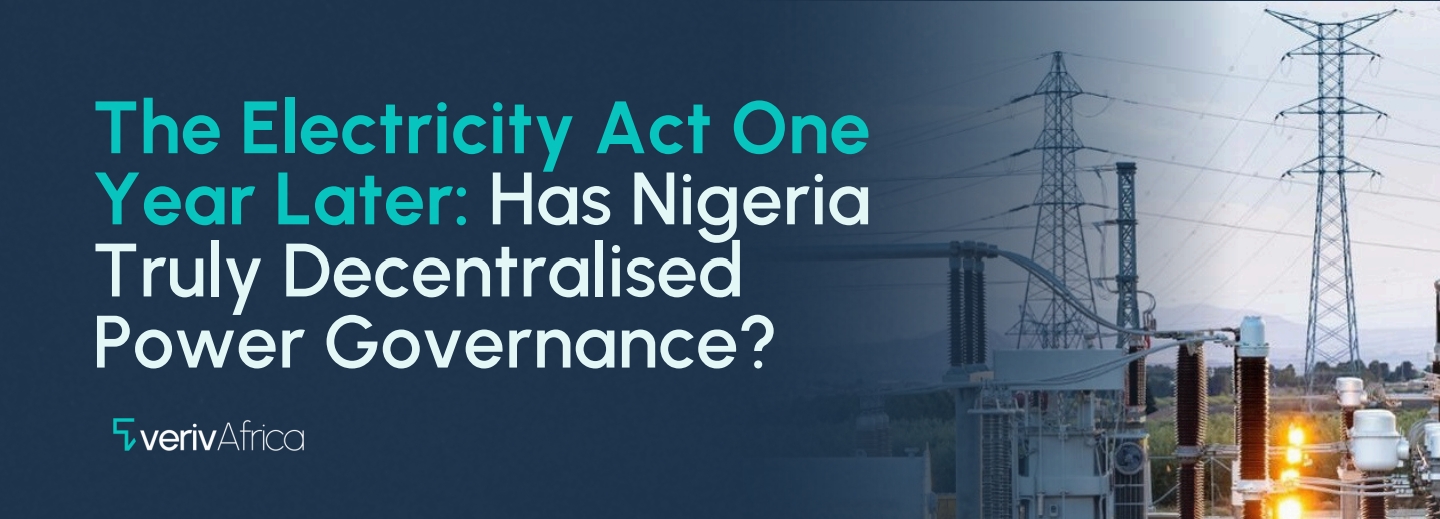Nigeria's 1999 constitution recognises the local government structure as the third tier of governance in its federal system. Yet, longstanding structural gaps in local government administration, particularly in resource management due to state government interference, have rendered it ineffective for the grassroots populace. Efforts to address this issue were reinforced by the recent Supreme Court's landmark ruling on July 11, 2024, which declared withholding local government funds by state governments unconstitutional, potentially freeing up ₦2 trillion annually for local development. While this is laudable and promising, neglecting the root causes of non-transparency and ineffectiveness may further entrench the corruption ladder.
Prevailing models at the global stage underscore the imperative role of technology in enhancing accountability at the grassroots level of governance. For example, India’s e-Panchayat system facilitates ease in budget publishing and enables citizens to provide timely feedback for over 250,000 village councils. In Estonia, municipalities deliver 99% of public services electronically. This creates a heightened urgency in Nigeria, where less than 1% of local government areas operate functional websites, further compounded by the absence of online budgets or implementation reports. This has created a fertile ground for corruption, necessitating increased advocacy for digital reforms to actualise a transparent system at the local level. As a result, this article explores the practical application of technology in Nigeria's local governance, particularly in the context of constitutional reaffirmation.
The Cost of Digital Silence and Data Decay
The 2011 Freedom of Information Act (FOIA) mandates that public institutions proactively make accessible pertinent information related to budgets and service delivery reports to the public. Achieving this feat in a digitally enabled world is easier through online platforms, which local government areas in Nigeria often fall short of, as over 99% lack functional websites, making compliance a tall order. This culture of non-transparency is highly detrimental to human capital development, as local government areas are constitutionally placed closest to the people to deliver essential services for their well-being, which is pivotal for actualising inclusive democracy for the local populace.
This ineffectiveness is manifested in the appointment of caretaker committees by state governments to manage local government administration. The selection criteria are determined based on political loyalty rather than meritocracy, snowballing into state-sponsored political clientelism and the misuse of public funds. Without digital systems, varying levels of corruption, such as payroll fraud, inflated contracts, and unaccounted projects, persist. Hence, an open governance system backed by digital systems and compliant with FOI nationwide is essential to address this democratic misalignment.
The Joint Account Trap and Fiscal Shadows
The State Joint Local Government Account (SJLGA) was established under the constitution to serve as a fund pool for statutory allocations meant for local governments and the state, intending to facilitate timely onward disbursement. Regrettably, this has evolved into a tool the state government uses to exert control, thereby limiting/eliminating local government autonomy and creating a system void of transparency and inclusive governance.
This emperor-like control of resources by the state government, bolstered by a weak oversight atmosphere, reinforces a system of ghost workers, inflated contracts, incomplete projects, and the absence of local government elections.
The Supreme Court's ruling affirming financial autonomy for local government has renewed attention on reform. Deploying digital tools like e-payment systems, biometric authentication, and real-time budget dashboards can enhance oversight and foster fiscal discipline. Institutionalising such systems will be essential for local governments to fulfil their developmental mandates and contribute meaningfully to Nigeria's broader governance and service delivery goals.
Civic Tools Transforming Local Governance
Civic technology offers a viable approach to enhancing the transparency and accountability of Nigeria's local governance framework. Platforms such as Tracka, FollowTheMoney, and U-Report provide insights into how citizens can participate in budget monitoring, project tracking, and feedback. Tracka facilitates the usage of pictures to provide status updates on projects across the nation. Additionally, FollowTheMoney collaborates with local communities to track the use of public funds, particularly in health and education. While UNICEF's U-Report supports the aggregation of citizens' feedback through SMS polls, it also expands youth participation. These platforms offer models that can be scaled for local government use.
At the national level, the Federal Government has announced plans to complete the digitisation of all local government headquarters by 2027. While this initiative is commendable, it highlights a troubling trend of misalignment between local government autonomy and actual dependence on other tiers of government, reiterating the need for an overhaul of the system anchored in locally driven digital governance.
Looking ahead, emerging technologies such as mobile reporting, geospatial mapping, blockchain, and AI-based anomaly detection can aid service monitoring and financial oversight. Furthermore, effective collaboration among CSOs, the private sector, and the government will be pivotal to integrating these tools and enhancing grassroots governance.
Why Civic Tech Often Fails
The absence of political will to institutionalise transparency systems will negatively impact the effectiveness and efficiency of civic tools to ensure accountable systems. This absence will not guarantee favourable outcomes even with the most advanced tools. For instance, the national e-government master plan to revolutionise public service delivery has not shown the expected results, likely due to the lack of a required enforcement mechanism at national and sub-national levels.
Capacity constraints hinder adoption and utility; many local government areas suffer from low digital literacy among their personnel and operate with minimal ICT equipment. Additionally, varying levels of insecurity exacerbate the situation, as many local government areas have become ungoverned spaces, hindering the delivery of local governance services. Under such conditions, operationalising digital systems will be complex.
This further justifies why institutional reforms, capacity building for local authorities, and pressure from citizens and civil society are essential for seamlessly integrating digital systems. Embedding transparency into local government operations requires platforms, political commitment, skilled human resources, and citizen engagement to overcome the structural and behavioural barriers that undermine the effectiveness of civic tech.
Digital Agenda for Action
Strengthening local governance transparency rooted in digitally inclusive frameworks requires pragmatic and deliberate efforts from all stakeholders. To begin with, the national e-government strategy, though an impressive digital transformation plan, must be contextualised by local governments for ownership and sustainability. CSOs should support this by developing standardised templates for publishing budgets, procurement details, and project updates.
These tools should be designed in a simple, mobile-responsive, and FOIA-compliant manner and supported by technology service providers to provide cost-effective and secure platforms. Furthermore, targeted capacity building for local government area officials on using digital tools and the essentials and application of the FOIA can be strengthened through peer exchange learning with similar structures from other African countries.
For areas impacted by security challenges, such initiatives should be introduced in stages, beginning with low-bandwidth tools and offline data entry where applicable. Ultimately, collaboration among federal agencies, state governments, and development partners will be crucial to ensure that constitutional autonomy yields tangible benefits for communities.
References
Chiejina, N. (2024) ‘668 local governments have no websites', The Nation Newspaper. Available at: https://thenationonlineng.net/668-local-governments-have-no-websites/ (Accessed: June 24, 2025).
Agba, J.U., Ogri, E.U. and Adomi, K.O. (2018) 'The Nigerian Freedom of Information (FOI) Act and the Right to Know: Bridging the Gap between Principle and Practice', New media and mass communication, 73, pp. 21–31. Available at: https://doi.org/10.7176/nmmc.vol7321-31
Nnrs from the Local Government Service of Delta State, Nigeria, International Journal of Sub-Saharan African Research, 3(1). Available at: https://doi.org/10.5281/zenodo.14564993
Ananti, M. and Umeifekwem, U. (2012) 'Work Ethics and Productivity in Local Government System in Nigeria, Problems and Prospects', African Research Review, 6(1). Available at: https://doi.org/10.4314/afrrev.v6i1.30
Adekoya, A.A. (2024) 'Public Procurement in Local Government: A Tool for Good Governance, Value Creation, and Sustainable Development', International Journal of Management and Economics Invention, 10(08). Available at: https://doi.org/10.47191/ijmei/v10i8.09.
BudgIT (2024) Tracka - The Budgit Foundation - Nigeria Budget Transparency, The Budgit Foundation. Available at: https://budgit.org/our_programs/tracka/ (Accessed: June 27, 2025).
CODE (2025) Follow The Money | Advocating, Visualising and Tracking funds for Local Communities, Followthemoneyng.org. Available at: https://followthemoneyng.org/ (Accessed: June 27, 2025).
UNICEF (2021). U-Report Nigeria reaches 4 million responders. Retrieved from Unicef.org. Available at: https://www.unicef.org/nigeria/press-releases/u-report-nigeria-hits-4-million-responders (Accessed: June 27, 2025).
Bajeti Hub (2025) Kenya's County Budget Transparency Survey 2024: Open Budgets, Open Dialogue. Available at: https://bajetihub.org/wp-content/uploads/2025/05/Bajeti-Hub-County-Budget-Transparency-Survey-2024-Full-Report.pdf (Accessed: June 28, 2025).
Punch NG (2024) 'FG to digitise 774 LG headquarters by 2027', Punch Newspapers, November 14. Available at: https://punchng.com/fg-to-digitise-774-lg-headquarters-by-2027/ (Accessed: June 28, 2025).
Obiowo, C. (2025). FG directs civil service MDAs to achieve complete digitalisation, go paperless by the end of 2025, Nairametrics. Available at: https://nairametrics.com/2025/06/11/fg-directs-civil-service-mdas-to-achieve-full-digitalisation-go-paperless-by-end-of-2025/ (Accessed: June 28, 2025).
FMCIDE (2023) Nigeria E-Government Master Plan. Available at: https://fmcide.gov.ng/wp-content/uploads/2023/11/NgeGovMP.pdf#page=121.06 (Accessed: June 27, 2025).
Dosumu, J. (2024) 'Overcoming Infrastructural Barriers to Digital Literacy in Rural Nigeria', SSRN [Preprint]. Available at: https://doi.org/10.2139/ssrn.4992050.
Editorial Board (2023) Bandits' control of 23 LGAs alarming, Punch Newspapers. Available at: https://punchng.com/bandits-control-of-23-lgas-alarming/ (Accessed: June 27, 2025).aa, B.G. and Arugu, L.O. (2020) 'Local Government Administration and Challenges of Sustainable National Development in Nigeria', International Journal of Advanced Research in Social Sciences, Environmental Studies & Technology, 5(1). Available at: https://internationalpolicybrief.org/wp-content/uploads/2023/10/ARTICLE6-104.pdf.
Government of Nigeria (1999). The Constitution of the Federal Republic of Nigeria
BusinessDay NG (2025) State governments do not have the constitutional right to retain and utilise funds allocated to local government councils, BusinessDay NG. Available at: https://businessday.ng/news/legal-business/article/state-governments-do-not-have-the-constitutional-right-to-retain-and-utilise-funds-allocated-to-local-government-councils/ (Accessed: June 26, 2025).
Ekezue, H.M. (2025) 'Impact of Electronic Biometric Attendance Register in Eliminating Ghost Workers '
FMCIDE (2023) Nigeria E-Government Master Plan. Available at: https://fmcide.gov.ng/wp-content/uploads/2023/11/NgeGovMP.pdf#page=121.06 (Accessed: June 27, 2025).
Dosumu, J. (2024) ‘Overcoming Infrastructural Barriers to Digital Literacy in Rural Nigeria’, SSRN [Preprint]. Available at: https://doi.org/10.2139/ssrn.4992050.
Punch (2023) Bandits’ control of 23 LGAs alarming, Punch Newspapers. Available at: https://punchng.com/bandits-control-of-23-lgas-alarming/ (Accessed: June 27, 2025).










